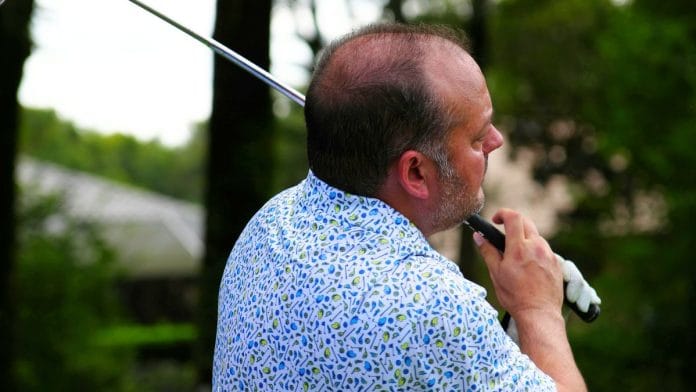Hair fall is a very sensitive topic for us all. Thanks to the water quality, pollution, and our lifestyles in general, we all suffer from it. Laser hair therapy is a tried and tested way to bolster your hair growth. A lot of my patients have come to me with questions about what it is, the pros and cons, etc.
First, let’s break it down. The term “laser” stands for Light Amplification by Stimulated Emission of Radiation. Laser hair therapy, low-level laser therapy (LLLT) or red light therapy, uses low-level lasers to stimulate hair follicles, promoting hair growth.
It is a non-invasive treatment designed to combat hair loss. Low-level lasers or light-emitting diodes (LEDs) irradiate photons into the scalp tissues to encourage hair growth.
Here are some key benefits:
Stimulation of hair follicles: Light energy is absorbed by hair follicle cells, increasing cellular activity and promoting the anagen (growth) phase.
Increased blood flow: Laser therapy enhances blood circulation in the scalp, ensuring that hair follicles receive essential oxygen and nutrients.
Enhanced cellular metabolism: The therapy can boost ATP (adenosine triphosphate) production, which provides energy to the cells and improves their function, leading to better hair growth.
While there are substantial benefits from the therapy, it is important to separate facts from myths and be fully aware of the drawbacks of the treatment.
Also read: Fillers can give the desired look—follow these dos and don’ts
Lack of scientific validation
One of the most critical issues surrounding laser hair therapy is the lack of robust scientific evidence supporting its efficacy. While a lot of people talk about its benefits, rigorous, large-scale studies validating its long-term effectiveness are scarce. This absence of conclusive scientific data raises concerns about the reliability and sustainability of laser therapy as a hair loss solution.
Variable treatment outcomes
Personal experiences with laser hair therapy can vary widely. Some individuals report positive results, citing thicker hair and reduced shedding. However, these outcomes are inconsistent, with many users failing to achieve substantial improvement.
Not for severe hair loss
For individuals with severe hair loss, such as women with advanced alopecia, laser therapy often doesn’t work. In my clinic, we offer specific laser helmets for therapy, which I recommend alongside PRP (Platelet-Rich Plasma) therapy for severe cases.
While men have many hair transplant options, women don’t. That is why I suggest a few sessions of PRP along with laser therapy using high-quality helmets for best results.
Moreover, laser therapy is generally more effective at promoting hair growth in areas with thinning hair rather than completely bald spots. It may not provide satisfactory results for those with advanced hair loss.
Commitment and cost
Maintaining the results often requires continuous treatments. This necessitates regular sessions, which can be both time-consuming and expensive.
In my 13 years of experience, I have observed that laser helmets are the only way to go about the therapy for hair growth. However, each laser helmet costs about Rs 1 – 2 lakh. Cheaper alternatives are virtually ineffective and a waste of money.
Considering how little scientific evidence supports laser therapy, I don’t prescribe it to any of my patients for longer than three months. Additionally, an unwanted negative effect of the therapy is that it can cause headaches and trigger migraines.
Many experts recommend using it as a short-term adjunct to other proven treatments rather than a standalone solution. This approach helps manage expectations and minimises reliance on treatment with uncertain long-term benefits.
The lack of conclusive scientific evidence, variable treatment outcomes, and limited efficacy in severe cases of hair loss highlight the need for informed decision-making. Alternative treatments supported by stronger scientific validation, such as PRP therapy and hair transplantation, may be more reliable.
Before you go for laser therapy, ask yourself four questions. Can you really afford it? Is it the best treatment for your condition? Can you commit to regular treatments and follow the recommended protocol? And lastly, has your trusted dermatologist signed off on it?
Dr Deepali Bhardwaj is a Consultant Dermatologist, Max Hospital, Saket. She is also an anti-allergy specialist, laser surgeon and internationally trained aesthetician. She tweets @dermatdoc. Views are personal.
(Edited by Ratan Priya)






